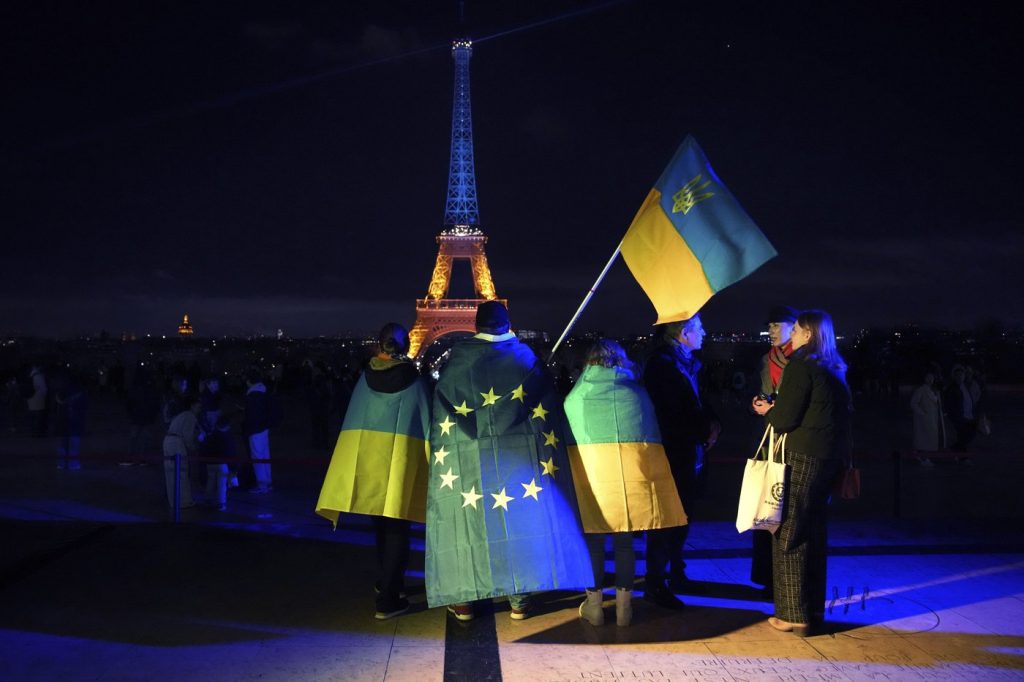KYIV, Ukraine (AP) — Ukraine seeks clarity as military leaders from over 30 countries gather in Paris for discussions aimed at forming an international force intended to deter future Russian hostility once a ceasefire is achieved. Key issues to be addressed include the size and location of this force, as well as specific military options should Russia breach any future agreements.
The Paris talks represent a significant advancement in efforts led by France and Britain to unite global nations in a "coalition of the willing." This coalition would provide Ukraine with security assurances and a deterrence strategy against potential Russian aggression.
Nearly all 32 NATO member states will attend the talks, although the United States is notably absent. In addition, members from the Commonwealth and notable Asian allies, such as Japan and South Korea, will participate. A French military official indicated that the attendees will detail what military support, encompassing troops, equipment, or other resources, they can provide.
Some Ukrainian officials express reservations regarding any agreements that do not include solid security guarantees. A primary concern is the coalition's potential response should Russia infringe upon a ceasefire. Specific questions revolve around the nature of military responses to large-scale Russian offensives and the speed with which such responses can be mobilized.
Current discussions reflect a lack of a comprehensive military plan. According to Western and Ukrainian officials, while brainstorming has begun, no concrete proposals exist yet. The discussions with officials from Ukraine, France, and the UK reveal a cautious approach to developing military options, pending further assessment of contributions from participating nations.
Ukrainian President Volodymyr Zelenskyy has expressed cautious optimism regarding the proposal. Although he acknowledges the necessity of foreign troops, he insists that substantial security guarantees also require military support from the U.S. and Europe, along with efforts to bolster Ukraine's defense industry. A senior Ukrainian official acknowledged ongoing discussions but emphasized the absence of a tangible plan.
As the discussions unfold, the French-British initiative is envisioned as establishing a military presence robust enough to deter any future Russian incursions. This proposed force is aimed at reassuring Ukraine and deterring a potential large-scale Russian offensive post-ceasefire. The envisioned capabilities may include heavy weaponry and stockpiles that can be deployed rapidly to support Ukraine's defense if a ceasefire is disrupted.
Some officials suggest that the plan might also encompass the possibility of direct retaliatory strikes on Russian military assets should any violations occur. Specifics of the framework have emerged through ongoing technical discussions among Western diplomatic and military figures, aiming to establish a unified approach among nations.
In recent summits, key European leaders have attempted to reach consensus on a cooperative strategy, including talks held on March 2 in London and a virtual meeting on March 5 involving around 20 countries. In an effort to broaden support, France and Britain are also engaging nations in Asia and Oceania. Australia, New Zealand, Japan, and South Korea will participate remotely, while Turkey and Canada will also attend.
The absence of the United States is intentional, aiming to demonstrate that European nations can take significant responsibility in ensuring Ukraine's safety once a peace agreement is viable. Recent discussions have reflected a vision for a Europe-led "reassurance force" consisting of fewer than 30,000 troops, rather than deploying a comprehensive peacekeeping army along the extensive front line.
Some officials propose stationed forces could be positioned at vital infrastructure locations, with capabilities enhanced by Western air and naval support. The expectation is to monitor the front line using advanced technology such as drones, while positioning air power in nearby countries for rapid deployment should breaches occur. Allied naval forces may conduct operations in the Black Sea, including mine-clearing and patrolling to safeguard international waters.
Overall, there is cautious optimism among Ukrainian officials regarding the formation of a coalition to ensure peace and stability amidst geopolitical tensions. They acknowledge limited options with NATO's involvement in question and hope that Europe will rise to the occasion to support Ukraine's defense and security needs.










